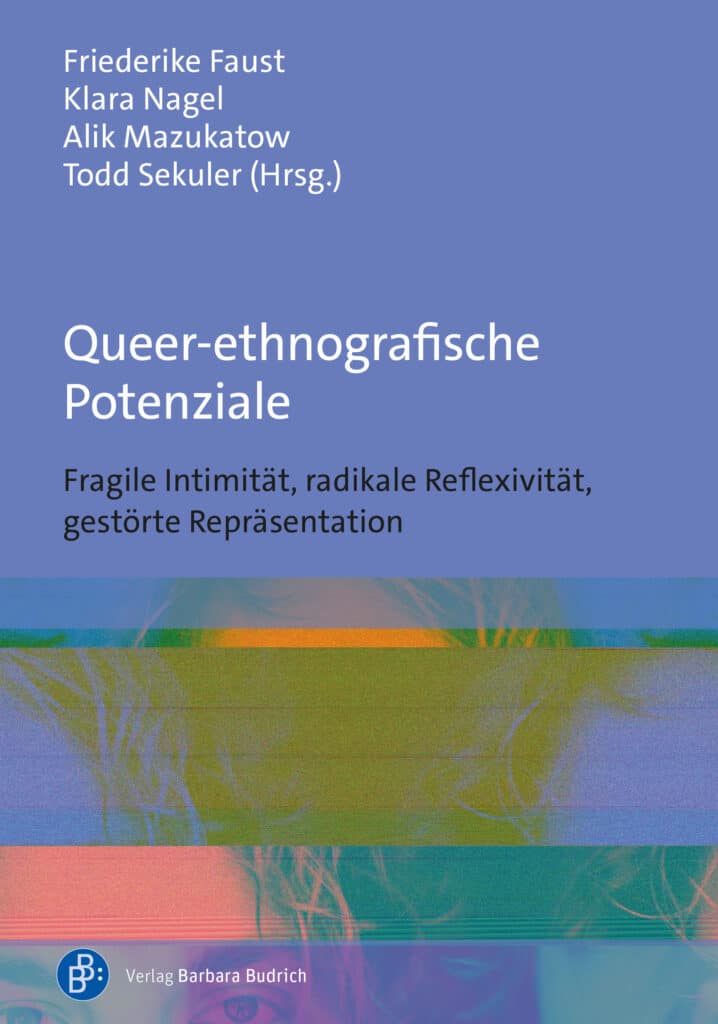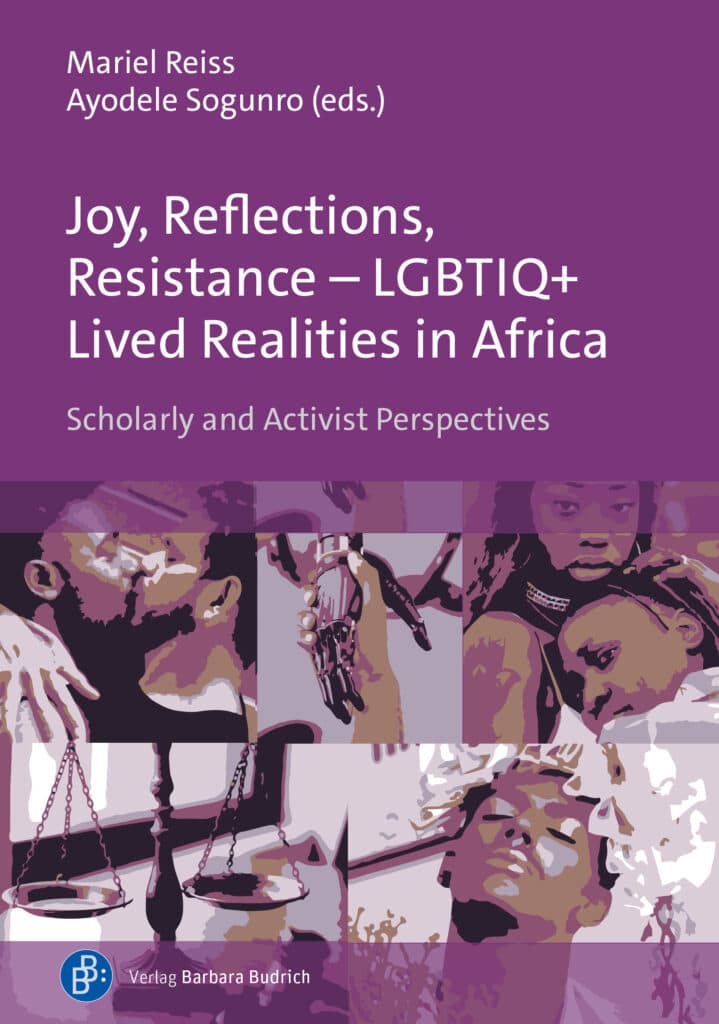Informationen zum Buch
Startseite » Programm » Civil Society and Gender Relations in Authoritarian and Hybrid Regimes
Civil Society and Gender Relations in Authoritarian and Hybrid Regimes
New Theoretical Approaches and Empirical Case Studies
Erscheinungsdatum : 10.09.2018
0,00 € - 33,00 €
Beschreibung
Open Access: The book Civil Society and Gender Relations in Authoritarian and Hybrid Regimes is an Open Access title (DOI: 10.3224/84740729) , which is free to download or can be bought as paperback. The book holds a Creative Commons License Attribution4.0 International (CC BY4.0): https://creativecommons.org/licenses/by/4.0/ / Der Titel Civil Society and Gender Relations in Authoritarian and Hybrid Regimes (DOI: 10.3224/847407292) ist kostenlos im Open Access (PDF) herunterladbar oder kostenpflichtig als Print-Ausgabe erhältlich. Der Titel steht unter der Creative Commons Lizenz Attribution 4.0 International (CC BY 4.0): https://creativecommons.org/licenses/by/4.0/
Is civil society’s influence favorable to the evolvement of democratic structures and democratic gender relations? While traditional approaches would answer in the affirmative, the authors highlight the ambivalences. Focusing on women’s organizations in authoritarian and hybrid regimes, they cover the full spectrum of civil society’s possible performance: from its important role in the overcoming of power relations to its reinforcement as backers of government structures or the distribution of antifeminist ideas.
The revival of authoritarianism in comparative politics has currently been reflected within gender studies, encouraged by the idea that women tend to be the first and most vulnerable to suffer in authoritarian societies. However, traditional approaches focusing on institutions and quotas still dominate in spite of proving insufficient to explain persisting inequities.
In an attempt to fill existing research gaps this publication takes a bottom-up perspective analyzing gender relations as societal power structures in nondemocratic regimes – from the perspective that this pledges multitudinous links and theoretical potential for feminist theory as well as democratization studies. The specific focus is on civil society as a societal sphere, traditionally seen as antagonistic to undemocratic and patriarchal state structures and important for societal modernization and democratization.
Countering this, this text argues that the role of civil society is an ambivalent one, evolving between two different theoretical conceptualizations; the “Gramscian” and the “Tocquevillian” perspective on civic organization. The central argument is that civil society can play both: an important role in the overcoming of power relations as well as in their reinforcement – in the form of conservative and unprogressive (antifeminist) movements, dubious entanglements with government structures or simply as depoliticized service providers.
from the content:
- Theoretical foundations and methodological implications
- Case studies
The editors:
Prof. Gabriele Wilde,
Prof. Annette Zimmer,
Dr. Katharina Obuch,
Dr. Isabelle-Christine Panreck,
all: Westfälische Wilhelms-Universität Münster, Germany
Download for free: publicity leaflet (pdf)
Target groups: teachers and researchers in the fields of political science, sociology and gender studies
Keywords: women’s organizations; power relations; antifeminism
Departments: Political Science, Gender, Sociology
Zusätzliche Information
| Verlag | |
|---|---|
| ISBN | 978-3-8474-0729-4 |
| eISBN | 978-3-8474-0874-1 |
| Format | A5 |
| Umfang | 269 |
| Erscheinungsjahr | 2018 |
| Erscheinungsdatum | 10.09.2018 |
| Sprache | Englisch |
Autor*innen
Schlagwörterantifeminism, power relations, Women's organizations
Beschreibung
Beschreibung
Open Access: The book Civil Society and Gender Relations in Authoritarian and Hybrid Regimes is an Open Access title (DOI: 10.3224/84740729) , which is free to download or can be bought as paperback. The book holds a Creative Commons License Attribution4.0 International (CC BY4.0): https://creativecommons.org/licenses/by/4.0/ / Der Titel Civil Society and Gender Relations in Authoritarian and Hybrid Regimes (DOI: 10.3224/847407292) ist kostenlos im Open Access (PDF) herunterladbar oder kostenpflichtig als Print-Ausgabe erhältlich. Der Titel steht unter der Creative Commons Lizenz Attribution 4.0 International (CC BY 4.0): https://creativecommons.org/licenses/by/4.0/
Is civil society’s influence favorable to the evolvement of democratic structures and democratic gender relations? While traditional approaches would answer in the affirmative, the authors highlight the ambivalences. Focusing on women’s organizations in authoritarian and hybrid regimes, they cover the full spectrum of civil society’s possible performance: from its important role in the overcoming of power relations to its reinforcement as backers of government structures or the distribution of antifeminist ideas.
The revival of authoritarianism in comparative politics has currently been reflected within gender studies, encouraged by the idea that women tend to be the first and most vulnerable to suffer in authoritarian societies. However, traditional approaches focusing on institutions and quotas still dominate in spite of proving insufficient to explain persisting inequities.
In an attempt to fill existing research gaps this publication takes a bottom-up perspective analyzing gender relations as societal power structures in nondemocratic regimes – from the perspective that this pledges multitudinous links and theoretical potential for feminist theory as well as democratization studies. The specific focus is on civil society as a societal sphere, traditionally seen as antagonistic to undemocratic and patriarchal state structures and important for societal modernization and democratization.
Countering this, this text argues that the role of civil society is an ambivalent one, evolving between two different theoretical conceptualizations; the “Gramscian” and the “Tocquevillian” perspective on civic organization. The central argument is that civil society can play both: an important role in the overcoming of power relations as well as in their reinforcement – in the form of conservative and unprogressive (antifeminist) movements, dubious entanglements with government structures or simply as depoliticized service providers.
from the content:
- Theoretical foundations and methodological implications
- Case studies
The editors:
Prof. Gabriele Wilde,
Prof. Annette Zimmer,
Dr. Katharina Obuch,
Dr. Isabelle-Christine Panreck,
all: Westfälische Wilhelms-Universität Münster, Germany
Download for free: publicity leaflet (pdf)
Target groups: teachers and researchers in the fields of political science, sociology and gender studies
Keywords: women’s organizations; power relations; antifeminism
Departments: Political Science, Gender, Sociology
Bibliografie
Zusätzliche Information
| Verlag | |
|---|---|
| ISBN | 978-3-8474-0729-4 |
| eISBN | 978-3-8474-0874-1 |
| Format | A5 |
| Umfang | 269 |
| Erscheinungsjahr | 2018 |
| Erscheinungsdatum | 10.09.2018 |
| Sprache | Englisch |
Produktsicherheit
Bewertungen (0)
Bewertungen
Es gibt noch keine Bewertungen.










Bewertungen
Es gibt noch keine Bewertungen.